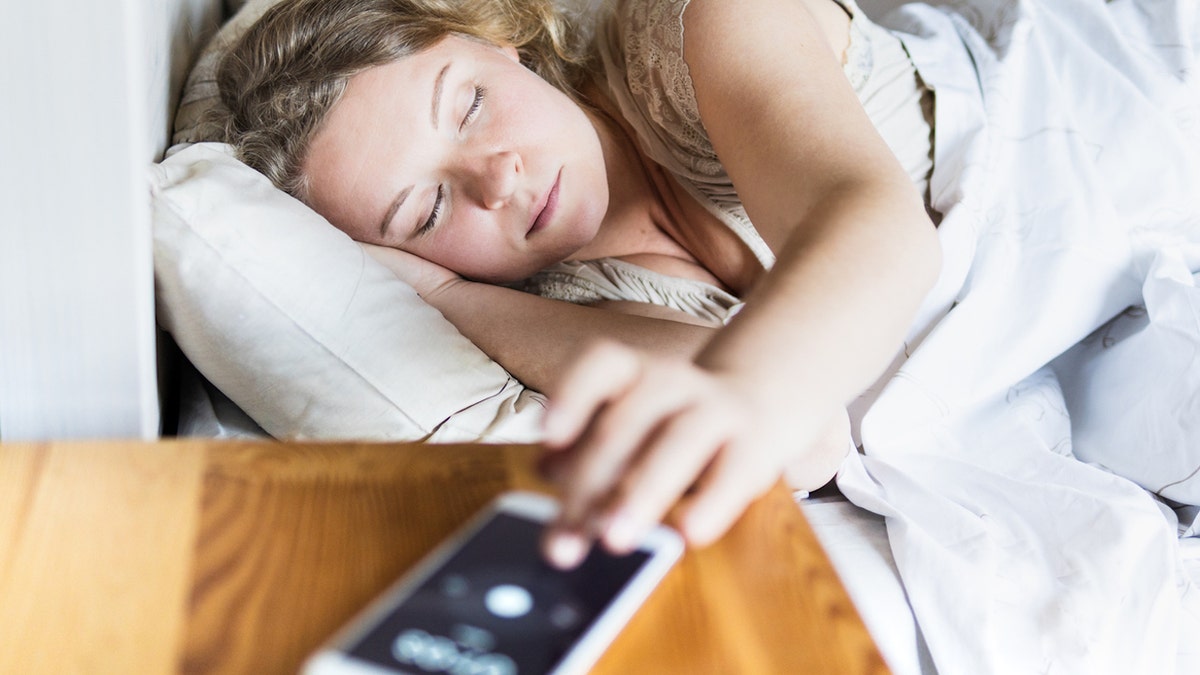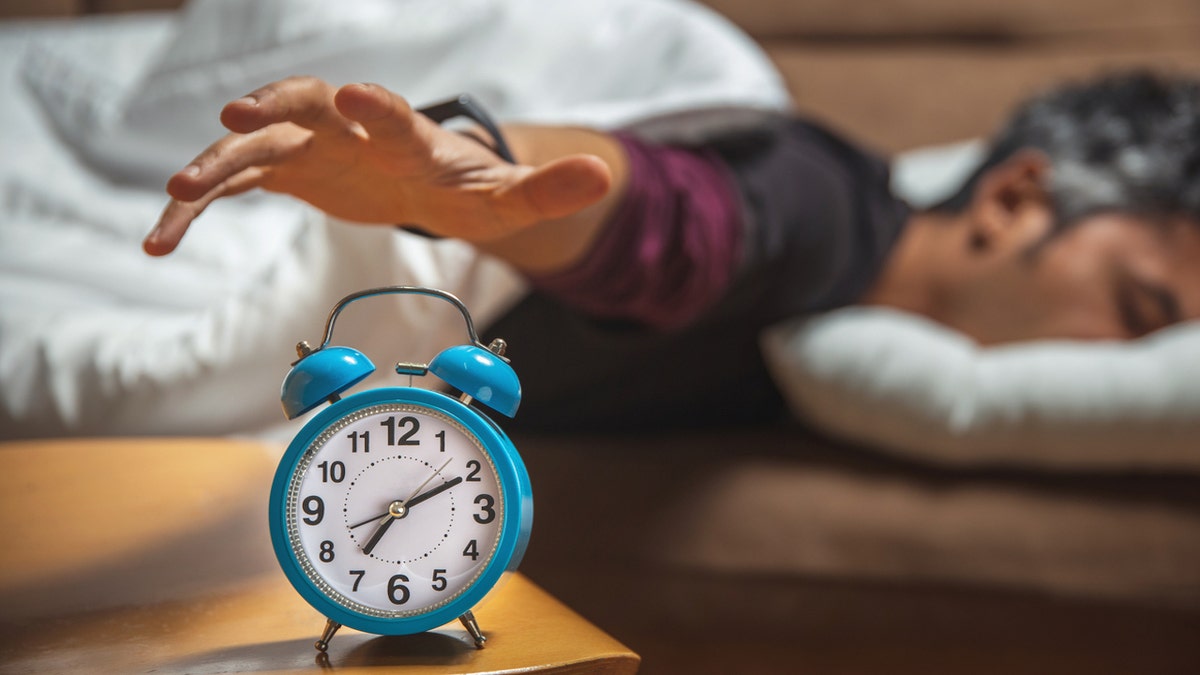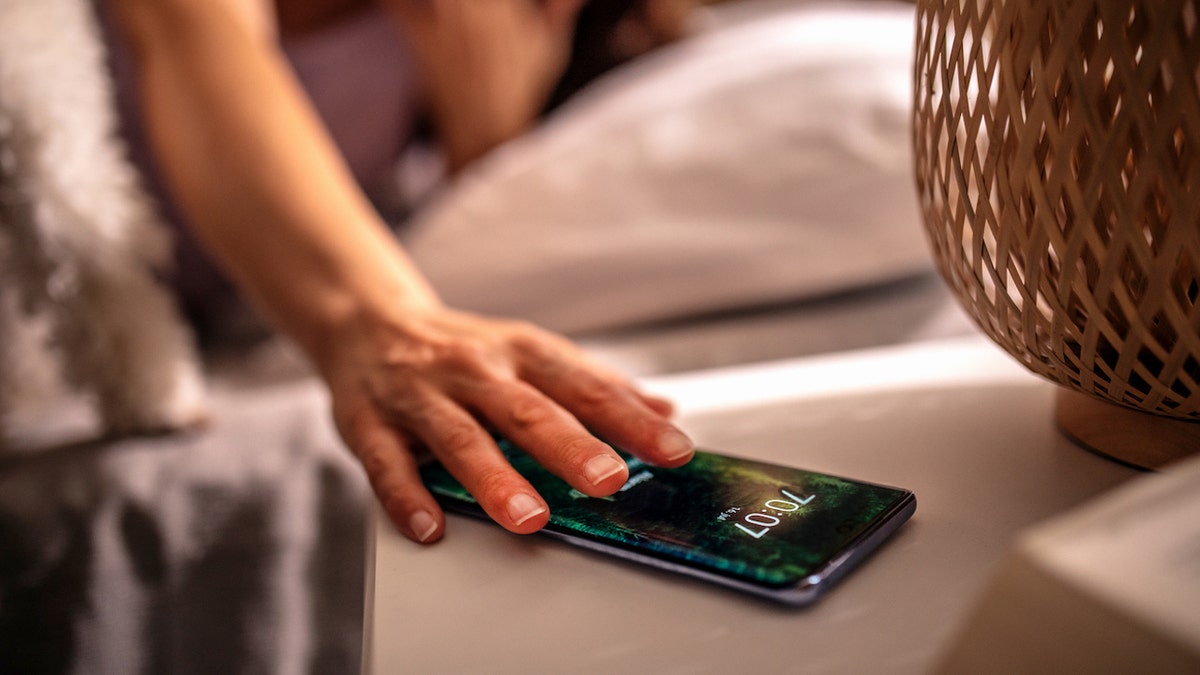Want a bit more sleep? Hitting that snooze button isn’t always bad, study finds

[ad_1]
The snooze button has gotten a bad rap over the years — but a new study published in the Journal of Sleep Research suggests that snoozing doesn’t always mean losing.
Researchers from Stockholm University in Sweden found that stealing that extra few minutes of sleep could actually support the waking process.
Participants were evaluated in two separate studies, according to a press release from the university.
WANT TO LOWER YOUR RISK OF DYING? GETTING A GOOD NIGHT’S SLEEP IS MORE URGENT THAN EVER
In the first study, 1,732 individuals answered questions about their morning wake routines.
Many of them reported using the snooze button, mainly because they were too tired to wake up right away.

Researchers from Stockholm University in Sweden found that stealing an extra few minutes of sleep could support the waking process. (iStock)
In a follow-up study, 31 people who regularly used the snooze button were analyzed in a sleep lab for two nights.
On one of the mornings, they were allowed to snooze for 30 minutes.
On the other morning, they had to get up right away.
WWII-ERA MILITARY SLEEP METHOD COULD HELP INSOMNIACS NOD OFF QUICKLY, SOME CLAIM: ‘PEACE AND CALM’
On the mornings when they snoozed, the participants performed better on cognitive tests.
They also showed no negative effects on their mood, sleepiness or cortisol (stress) levels.
“Our findings show that those who snooze on average sleep slightly shorter and feel more drowsy in the morning compared to those who never snooze,” said Tina Sundelin, a researcher at Stockholm University and lead author of the paper, in the press release.

On the mornings when they snoozed, the participants performed better on cognitive tests. They also showed no negative effects on their mood, sleepiness or cortisol (stress) levels. (iStock)
“But there were no negative effects of snoozing on cortisol release, morning tiredness, mood or sleep quality throughout the night.”
The researchers also noticed some positive outcomes, including a “decreased likelihood of waking from deep sleep,” Sundelin noted.
“When participants were allowed to snooze, they were also a bit more quick-thinking right when they got up,” she added.
ASK A DOC: ‘CAN WARMING MY FEET REALLY HELP ME SLEEP BETTER?’
The study did have some limitations. For instance, it only included people who are regular snoozers and already find it easy to go back to sleep after each alarm.
“Snoozing is most likely not for everyone,” added Sundelin.
Fox News Digital reached out to the researchers for additional comment.

In a 2022 study by the University of Notre Dame, researchers found that those who used the snooze button were less active during the day and “experienced more disturbances” while sleeping. (iStock)
The snooze button has been around since 1956, when General Electric-Telechron released its “Snooz-Alarm,” which offered roughly 10 minutes of extra sleep with the tap of the bar on top.
In a 2022 study by the University of Notre Dame, researchers found that those who used the snooze function were less active during the day and “experienced more disturbances” while sleeping, according to a press release.
CLICK HERE TO SIGN UP FOR OUR HEALTH NEWSLETTER
However, the snoozers did not report feeling tired more often, nor did they take more naps than the non-snoozers.
“There may be cases when hitting the snooze button is actually beneficial,” aid Stephen Mattingly, lead author of the study, in the press release.
CLICK HERE TO GET THE FOX NEWS APP
“If you snooze and you’re more alert when you get behind the wheel to go to work, that might be a benefit and a useful one. If it reduces dependence on caffeine, that’s another.”
For more Health articles, visit www.foxnews.com/health.
[ad_2]